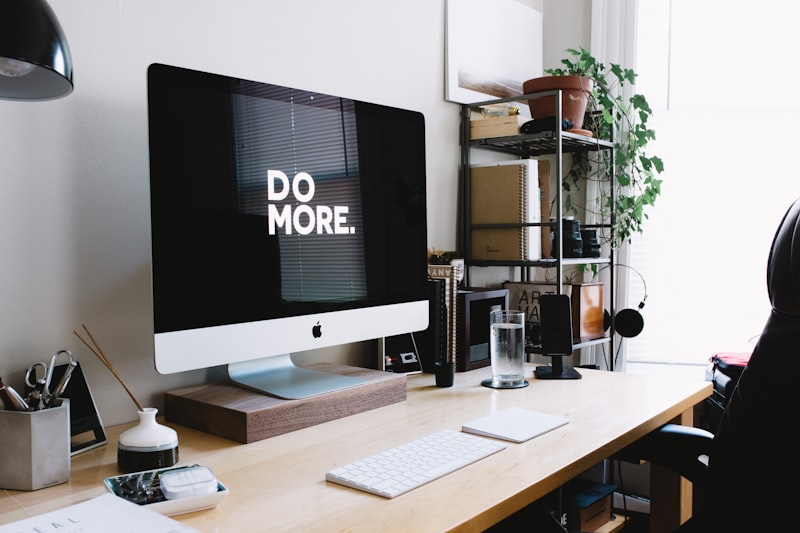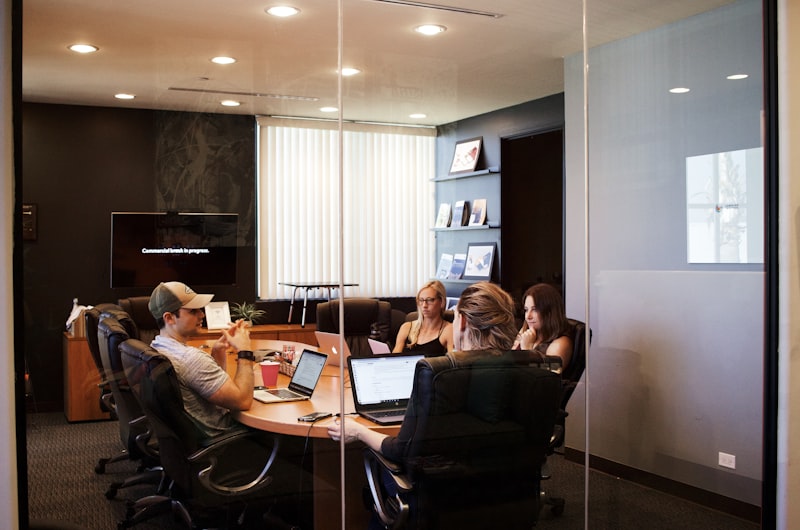Personal growth acts as the compass guiding you towards a balanced lifestyle. It’s not just about time management but also about managing your energy and priorities. Imagine your life as a garden; neglect it, and weeds of stress and burnout will take over. Cultivating personal growth is like tending to this garden – nurturing the plants (your skills and passions) while weeding out the unnecessary (like time-wasting activities).

Start by setting clear boundaries. Just as a good fence makes good neighbors, establishing limits between work and personal time is crucial. This could mean logging off emails after a certain hour, or dedicating weekends solely to personal pursuits. Boundaries ensure that work doesn’t spill over and dominate your life, allowing you the space to recharge and grow outside of professional responsibilities.
Additionally, hone your time management skills. Think of your time as currency – you wouldn’t want to waste it on frivolous purchases. Prioritize tasks based on their importance and deadlines. Use techniques like the Pomodoro method to maintain focus and productivity during work hours, leaving ample time for personal activities that enrich your life.
Furthermore, embrace continuous learning. Growth thrives in environments where curiosity is nurtured. Expand your horizons by learning new skills or pursuing hobbies that bring you joy. This not only enhances your personal development but also provides a refreshing break from the daily grind, reinvigorating you to tackle work challenges with renewed vigor.
Mastering Work-Life Harmony: Unveiling the Power of Personal Growth
Imagine work and life as two symphonies playing simultaneously. For harmony to resonate, each instrument—the professional and the personal—must find its rhythm without overpowering the other. This analogy reflects the essence of achieving a fulfilling balance: a blend where career aspirations harmonize with personal well-being and growth.
Personal growth forms the cornerstone of this harmony. It’s not merely about achieving professional milestones but also about evolving as individuals. This journey of personal growth encompasses self-awareness, skill development, and fostering meaningful relationships. As we grow personally, we become better equipped to navigate the demands of work and life with grace and resilience.
One might wonder, how does personal growth translate into work-life harmony? Consider this: by investing in self-improvement, whether through learning new skills, practicing mindfulness, or nurturing hobbies, individuals cultivate a sense of fulfillment that transcends their professional roles. This fulfillment, in turn, fuels productivity and creativity in the workplace, leading to a more balanced and satisfying work-life dynamic.
Moreover, personal growth isn’t a destination but a continuous evolution. It involves setting personal goals, embracing challenges, and learning from experiences—both successes and setbacks. This ongoing process empowers individuals to adapt to changing circumstances, manage stress effectively, and maintain a healthy perspective on life.
The Art of Balance: Elevating Your Life through Personal Growth Strategies
Imagine personal growth strategies as seeds you plant in the garden of your life. Each seed, whether it’s cultivating mindfulness, setting achievable goals, or fostering healthy relationships, requires nurturing and attention. Just like a well-tended garden blooms with vibrant flowers, nurturing these strategies can lead to a flourishing life where you feel more connected and purposeful.
One key aspect of personal growth is self-awareness. It’s like having a mirror that reflects not just your outer self, but also your inner thoughts, emotions, and motivations. By understanding yourself better, you can make conscious choices that align with your values and aspirations. It’s about asking yourself the tough questions: What makes me truly happy? What are my strengths and weaknesses? How can I grow from my experiences?

Another essential strategy is continuous learning and adaptation. Life is a journey of constant change, much like a river that flows and reshapes its path over time. Embracing a mindset of learning allows you to adapt to new challenges and opportunities. Whether it’s acquiring new skills, exploring different perspectives, or learning from setbacks, every experience becomes a stepping stone towards personal evolution.
Moreover, resilience is the cornerstone of personal growth. It’s the ability to bounce back stronger when faced with adversity, much like a tree that bends but does not break in the face of a storm. Building resilience involves cultivating optimism, practicing gratitude, and developing coping mechanisms that help you weather the ups and downs of life.
Unlocking Work-Life Synergy: Transformative Personal Growth Techniques
So, what does “work-life synergy” really mean? Imagine your work life and personal life as two gears in a well-oiled machine, each turning smoothly and efficiently, complementing each other’s movements. It’s about finding that sweet spot where your professional ambitions align seamlessly with your personal goals and values.

One key technique to unlock this synergy is effective time management. It’s not just about squeezing more tasks into your day but prioritizing what truly matters. By identifying your core values and aligning your daily activities with them, you can create a sense of purpose and fulfillment both at work and at home.
Another crucial aspect is setting boundaries. In today’s hyper-connected world, it’s easy to let work spill over into personal time. Establishing clear boundaries helps in maintaining focus and dedicating quality time to both work tasks and personal relationships. It’s like building a fence around your personal time to safeguard it from the demands of work.
Moreover, nurturing a growth mindset is essential. Embrace challenges as opportunities for learning and development. Whether it’s acquiring new skills related to your career or exploring hobbies that enrich your personal life, continuous growth keeps you engaged and motivated in both spheres.
Finding synergy also involves self-care. Just as a machine needs regular maintenance to function optimally, you too need to prioritize your physical, mental, and emotional well-being. A healthy mind and body are essential for sustained productivity and happiness, both at work and in your personal life.
Ultimately, unlocking work-life synergy isn’t a one-time achievement but an ongoing journey. It requires introspection, intentional choices, and sometimes, a willingness to recalibrate when things feel out of balance. By applying these transformative personal growth techniques, you can cultivate a life where work and personal fulfillment complement and elevate each other, paving the way for a more fulfilling and harmonious existence.
Beyond Work-Life Balance: Thriving Through Continuous Personal Development
In today’s fast-paced world, achieving work-life balance seems like the ultimate goal. But what if there’s more to it than just balancing your job and personal life? Imagine not just juggling responsibilities, but thriving in every aspect of your life through continuous personal development.
Personal development goes beyond simply managing your time between work and leisure. It’s about actively seeking growth in all areas of your life—whether it’s improving your skills, expanding your knowledge, nurturing meaningful relationships, or enhancing your physical and mental well-being.
Think of it as a journey where you’re constantly evolving, learning new things, and becoming the best version of yourself. It’s about setting goals that challenge you, stepping out of your comfort zone, and embracing change as a catalyst for growth.
Imagine if each day you dedicated even just a small amount of time to improve yourself—whether it’s reading a book to expand your knowledge, taking a course to learn a new skill, or practicing mindfulness to strengthen your mental resilience. These small actions accumulate over time, leading to significant personal growth and fulfillment.
Continuous personal development is not a one-size-fits-all approach. It’s personalized to your aspirations, values, and dreams. It’s about discovering your strengths and weaknesses, and actively working on them to reach your full potential.
Just like a plant that needs nourishment to grow, you need to feed your mind, body, and soul with experiences and knowledge that propel you forward. It’s like sculpting a masterpiece out of clay—you mold and shape yourself through continuous learning and self-improvement.
Personal Growth Secrets to Achieving Sustainable Work-Life Integration
Firstly, it’s crucial to redefine your concept of balance. Instead of aiming for an equal split between work and personal life, think of it as an integration where both aspects complement each other. This means understanding that sometimes work might require more attention, while at other times, personal life takes precedence.
Effective time management is another key. It’s not about simply managing time but prioritizing tasks that truly matter. Identify your peak productivity periods and align your most important work tasks during these times. Similarly, allocate dedicated slots for personal activities that recharge you – whether it’s exercise, hobbies, or spending time with loved ones.
Moreover, setting boundaries is essential. Establish clear boundaries between work and personal time. This might involve turning off work notifications after a certain hour, creating a designated workspace that you leave at the end of the day, or setting aside specific days for non-work activities.
Continuous learning and skill development are also integral to sustainable work-life integration. Investing in yourself through learning new skills not only enhances your professional growth but also enriches your personal life. This can be through online courses, reading books, attending workshops, or seeking mentorship.
Furthermore, practice self-care consistently. Nurture your physical, mental, and emotional well-being. This could mean exercising regularly, practicing mindfulness or meditation, getting adequate sleep, and maintaining a healthy diet. When you prioritize self-care, you’re better equipped to handle the demands of both work and personal life.
Lastly, don’t underestimate the power of flexibility and adaptability. Life is unpredictable, and circumstances change. Being flexible allows you to adjust your routines and priorities accordingly, ensuring you maintain harmony between your career and personal aspirations.
Achieving sustainable work-life integration requires a mindful approach that involves redefining balance, effective time management, setting boundaries, continuous learning, self-care, and flexibility. By implementing these personal growth secrets, you can pave the way for a fulfilling and harmonious life where both work and personal well-being thrive.
Strategic Self-Improvement: The Key to Lasting Work-Life Balance
Ever wondered how some people seem to effortlessly juggle a thriving career with a fulfilling personal life? It’s not magic—it’s strategic self-improvement in action. In today’s fast-paced world, achieving a harmonious work-life balance isn’t just a luxury but a necessity for our well-being. Let’s dive into how strategic self-improvement can unlock this elusive equilibrium.
Firstly, what does strategic self-improvement really mean? It’s about consciously enhancing your skills, mindset, and habits to achieve specific goals—in this case, achieving a balanced life where both work and personal spheres thrive. It involves identifying areas for growth, setting achievable targets, and consistently working towards them.
Imagine your life as a well-crafted recipe. Strategic self-improvement acts as the secret ingredient that brings everything together. Just like a chef carefully selects and blends ingredients for the perfect dish, you curate and refine aspects of your life to create harmony. Whether it’s enhancing time management skills, nurturing meaningful relationships, or honing emotional resilience, each improvement contributes to a more balanced you.
Why is this approach so effective? Unlike generic self-help tips, strategic self-improvement is personalized and targeted. It recognizes that each individual’s journey towards balance is unique. By focusing on specific areas that matter most to you, whether it’s career advancement, health and wellness, or personal growth, you’re able to make meaningful progress.
Think of it as embarking on a journey with a clear destination in mind. Each step you take brings you closer to achieving that perfect balance between your professional and personal life. It’s not about perfection but progress—a continuous evolution towards a more fulfilling lifestyle.
Strategic self-improvement is not a one-size-fits-all solution but a personalized approach to achieving lasting work-life balance. By investing in yourself strategically, you pave the way for a more fulfilling and harmonious life where both career success and personal well-being thrive in tandem. Ready to embark on this journey? Start today and unlock the potential within you.
Frequently Asked Questions
How can mindfulness and self-awareness help in balancing work and personal life
Learn how mindfulness and self-awareness techniques can effectively balance work and personal life by enhancing focus, reducing stress, and fostering better decision-making and boundary setting.
Why is continuous learning essential for maintaining work-life balance over time
Continuous learning is crucial for maintaining work-life balance as it enables individuals to adapt to evolving demands and technologies. By staying updated, you can work efficiently, reduce stress from outdated methods, and allocate time effectively between work and personal life.
What is the importance of personal growth in achieving work-life balance
Understand how personal growth contributes to achieving work-life balance, ensuring holistic development and fulfillment both at work and in personal life.
How does setting boundaries contribute to achieving work-life balance through personal growth
Setting boundaries contributes to achieving work-life balance by fostering personal growth. Clear boundaries help prioritize tasks, manage time effectively, and reduce stress. This balance allows individuals to develop professionally while maintaining well-being.
What are practical strategies to develop time management skills for work-life balance
Discover effective strategies for improving time management to achieve work-life balance. Learn practical techniques such as prioritization, setting clear goals, delegating tasks, and using time-blocking methods. Implementing these strategies can help you optimize productivity and reduce stress, ensuring a healthier balance between professional and personal life.


